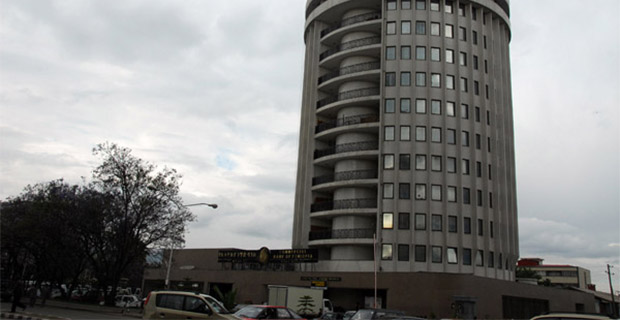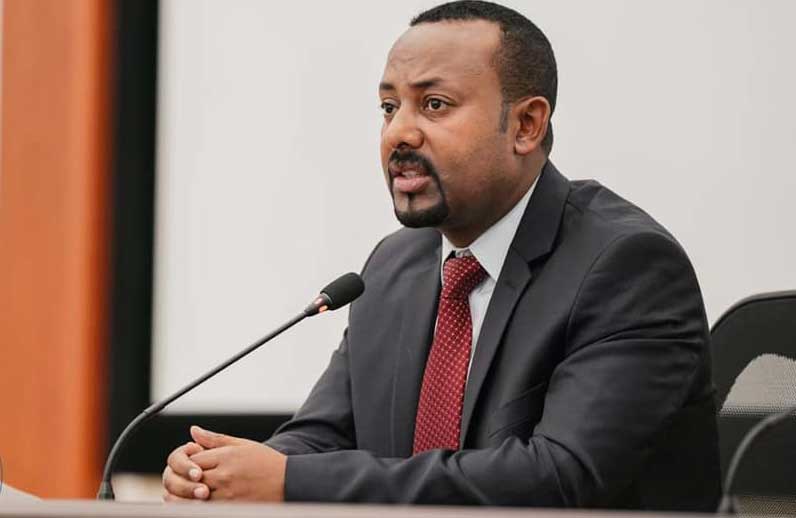
It was around midnight on November 3 when this 25-year-old was jarred wide awake by the sound of consecutive gunshots. He would be one of the first to witness the beginning of the armed conflict in the country.
The fourth-year law student was staying with extended family in Meqelle, the capital of Tigray Regional State, close to the Ethiopian National Defense Force's Northern Command base. The gunshots came from the base, where soldiers aligned with the Tigray People's Liberation Front (TPLF), the region's former administrators, allegedly opened fire on federal soldiers stationed there. The act would hurl the country into weeks of open war as the federal government carried out what it deemed a law enforcement operation in the Regional State.
"Most of us knew this was coming," said the student. "We were just shocked by how soon."
The impending conflict was the reason why his parents had pressured him to transfer from Addis Abeba University to Meqelle nearly two years ago.
The conflict, though escalating to full-scale war in early November, had been brewing since Prime Minister Abiy Ahmed (PhD) rose to power in 2018. In the days preceding the fighting, some residents in Meqelle had already started stocking up on groceries, according to accounts from people living there.
The student was on his way back home to Saesi Tsaedaemba Wereda on the eastern edge of the Regional State when the crisis began to unfold. He packed his bags the next day to try to get home while he still could, but the effort was in vain. Buses were nowhere to be found, and the region's borders had been closed — no one was to come in or out, he was told.
There were some exceptions, however, for those who had the right paperwork. People that had come to the region for work and had been stranded there could obtain permits to leave after a lengthy process with the City Administration. He did not fall under that category.
Phone lines, followed promptly by water and electricity, were cut a few hours after the breakout of open conflict for the subsequent weeks. But being stranded near a rural area had its benefits too; there was plenty of firewood.
"We were cooking with wood," he said. "There were also a few places that had groundwater, so we found drinking water there."
Prime Minister Abiy Ahmed (PhD) also visited Meqelle last week on Sunday, December 13, 2020, and held discussions with army generals who took part in the law enforcement operation.
Hotels with wells were also a source of water for many in the neighbourhood, according to him.
A few days later, the price of food and other items began to soar — at one point, the price of a quintal of teff, a staple meal for most, had reached 8,000 Br, nearly double its original price. Luckily, banks were giving out up to 2,000 Br to customers though they demanded a signature for the money with witnesses involved. Even so, he managed to get some money out.
But it was his parents' safety that had concerned him the most. He knew that they would be worried about him with no news coming from the centre of the conflict, and he had to resort to old methods to communicate his well-being. He wrote a letter telling them that he was safe and the letter was sent through a government car making its way there. Hoping that it would reach them, he remained with relatives as the hardships of war unfolded around them.
Neighbours started fleeing as gunshots and shelling increased, and government forces drew closer to the capital, according to his accounts. With the former administration pushed out and the federal army yet to arrive, it became a no man's land rife with looting and robberies.
"That's when a lot of houses were robbed," he said. "Part of our decision to stay at the house despite the situation was to look after our belongings."
It was only weeks afterward that he was able to reunite with his parents. Things were not much different there either. People were also spending nights outside their homes in fear of being shelled.
"They thought their houses would be seen as targets," he said.
The only sources of information were battery-powered radios, although televisions would occasionally turn on during brief flashes of electricity. It wasn't easy to ascertain any information as there were quite varied accounts coming from either side.
"It was hard to know what was true," he said.
Open conflict in major areas of the region subsided after nearly a month of fighting to the relief of many, like him, who had fears that this would drag on much longer. The federal government announced it had taken control of the region's capital at the end of last month and proclaimed the commencement of rebuilding in the city as the remaining faction of the TPLF is rounded up.
The transitional administration has been working on ensuring peace and stability in the region as a priority, according to Lilay Hailemariam, head of public relations in the administration.
"This means disarming the general population first," he said. "The fleeing forces had distributed arms, knives, even pieces of metal to hundreds of thousands in the region. Most of the disarmament has been voluntary."
The transitional government is also busy reconnecting electricity, water and phone lines that had also been destroyed by withdrawing TPLF forces, according to Lilay.
While lines running from Meqelle to Adigrat have been restored, areas in Adigrat, Shire and Adwa, site of the watershed Ethio-Italian War of 1896, are next in line. Airspace has once again been opened for local and international commercial flights, and flights to the region's capital have resumed.
"This required cleaning the airport's landing strip as it had been piled with rocks," said Lilay. "But the airport in Axum will need time and huge investment to rebuild. Grader machines have purposefully damaged it."
Admittedly, some things point to the region's return to its regular state; last week also saw the graduation of over 3,000 students from Meqelle University with the region's transitional government Chief Executive, Mulu Nega (PhD), leading the ceremony. The Chief Executive, who recently formed a new cabinet, also spoke about how government bureaus have resumed services, while some are being assessed for damage incurred during the war. Prime Minister Abiy Ahmed (PhD) has also visited Meqelle a week ago and held discussions with army generals who took part in the law enforcement operation.
But the region is still under heavy supervision with areas marked as off-limits even for humanitarian actors. A lack of access to parts of the Regional State has meant that much-needed humanitarian assistance has been out of reach for a region that had nearly two million in need of emergency food assistance even before the outbreak of the war.
Ready-to-use therapeutic food for the treatment of child malnutrition, medicine, water, fuel, and other essentials are running low, according to a statement released by UNICEF last week. The Agency estimates that around 2.3 million children have been cut off from humanitarian assistance.
To this end, the UN Central Emergency Fund released 13 million dollars at the end of last week to reach people within the country. An additional 12 million from the Agency’s Humanitarian Fund was released with priority given to women, children, the elderly and the disabled in disbursement. But it continues to appeal for full and unfettered access to assess current needs as well as provide support.
Experts also believe that the first weeks are a crucial time for responding to the basic needs of the communities in the region.
"People have the right to get necessary resources like food, water and medication," said Yilebes Addisu, assistant professor of disaster risk management and sustainable development at Bahir Dar University. "It should be provided without any preconditions."
Distributing essential supplies should also be based on needs, as there are cases where food supplies are sent where medicine is critically needed.
"In a conflict scenario like this, this will mean ensuring provisions reach inaccessible areas," he said. "It will need a special type of intervention, as it will be difficult to carry out needs assessments."
This is not a one-actor show; it requires a coordinated effort between different sectors, explained Yilebes. Though the primary response is expected from the government, it will need to engage other stakeholders, according to him.
"The government should make room for other aid actors," he said. "As aid should reach every segment of society."
The following step is working on the stability of the country: a long-term plan to reinstate the people to pre-war conditions. He also recommended engaging professionals and academics in this field to assist in emergency centres, as well as bolstering scientific support for the efforts throughout the process.
The calls for full humanitarian access are coming from all corners and resounding across the board. This has been one of the conditional grounds for the European Union to postpone 90 million euros in direct funding to the country’s budget. Thus far, Ethiopian authorities have stood their stubborn ground, come what may.
PUBLISHED ON
Dec 19,2020 [ VOL
21 , NO
1077]

Fortune News | May 25,2019

Radar | Mar 11,2024

Radar | Mar 02,2019

Radar | Sep 27,2020

Radar | Aug 25,2024

Fortune News | Jan 19,2019

Radar | May 21,2022

Fortune News | Mar 28,2020

Radar | Nov 13,2021

Radar | Jan 25,2020

Dec 22 , 2024 . By TIZITA SHEWAFERAW
Charged with transforming colossal state-owned enterprises into modern and competitiv...

Aug 18 , 2024 . By AKSAH ITALO
Although predictable Yonas Zerihun's job in the ride-hailing service is not immune to...

Jul 28 , 2024 . By TIZITA SHEWAFERAW
Unhabitual, perhaps too many, Samuel Gebreyohannes, 38, used to occasionally enjoy a couple of beers at breakfast. However, he recently swit...

Jul 13 , 2024 . By AKSAH ITALO
Investors who rely on tractors, trucks, and field vehicles for commuting, transporting commodities, and f...

Jun 28 , 2025
Meseret Damtie, the assertive auditor general, has never been shy about naming names...

Jun 21 , 2025
A well-worn adage says, “Budget is not destiny, but it is direction.” Examining t...

Jun 14 , 2025
Yet again, the Horn of Africa is bracing for trouble. A region already frayed by wars...

Jun 7 , 2025
Few promises shine brighter in Addis Abeba than the pledge of a roof for every family...